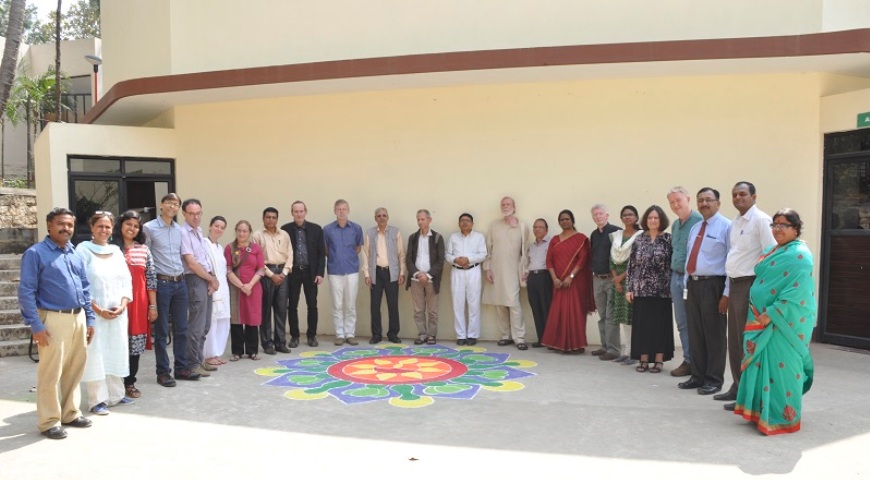
International Conference on Gandhi and Sri Aurobindo
Date: 10th – 11th February, 2016
Mohandas Karamchand Gandhi (1869-1948) (known as Mahatma Gandhi, from now onwards Gandhi) and Aurobindo Ghose (1871-1950) (known as Sri Aurobindo) are among the deep makers of modern India and their thoughts and actions have also significance for the whole world especially for its future trajectory of evolution towards a world of beauty, dignity and dialogues. But their lives, thoughts, contemporary legacies and works, and future relevance, have been rarely studied and explored together. Their lives, works and visions raise important historical, philosophical, theoretical and sociological questions which call for transdisciplinary engagement embodying modes of seeking in fields such as history, philosophy, literature and social theory. It also calls for a methodology of generous hermeneutics and simultaneous engagement instead of one of either or, or beginning with one’s apriori preferential hero and then calling the other to trial in terms of one’s apriori judgment and prejudices. In the conference, we walk with both Gandhi and Sri Aurobindo, Sri Aurobindo and Gandhi simultaneously with a spirit of exploration, understanding, generosity and critique. Some of the issues which we explored, among other linked and relevant issues, in our conference included the following:
Historical:
Sri Aurobindo was a major leader of the freedom struggle before the rise of Gandhi. In his Bande Mataram, Sri Aurobindo had focused on critical themes such as “Back to Villages”, Hindu Muslim unity which also became important concerns with Gandhi. Gandhi was reading Sri Aurobindo’s works while being in jail and wanted to meet with Sri Aurobindo (Heehs 2008). But as Sri Aurobindo had stopped meeting with anybody, he had written a hand-written letter to Gandhi expressing his inability (ibid). But Sri Aurobindo had also raised some important critiques about the leadership of Gandhi, for example accusing him of dictatorship in the way he ran the Congress.
Philosophical Questions and Questions State, Society and Political Organization
It is also enriching to think together Gandhi’s pathways of Swaraj and Sarvodaya and Sri Aurobindo’s pathways of integral education and syntheses of Yoga. Both of them present profound critiques of organization of state and constitution of self in modernity and suggest ways to transcend these. Both Sri Aurobindo and Gandhi call for a fundamental transformation of the very conceptualization and organization of individual and state.
Religion, Tradition and Spirituality
Both Gandhi and Sri Aurobindo had critical and creative and engagement with tradition, religion and spirituality. Both of them discovered their own traditions in complex ways (Gandhi first reading Gita in English in England and Sri Aurobindo first reading Upanishads and probably Gita in England too) and both of them had a deep love for their own mother languages, Gandhi writing in Gujarati and Sri Aurobindo writing in Bengalee though in case of Sri Aurobindo, unlike Gandhi, he wrote almost all his major works in English.
The Multiverse of Self, Other and the World
Both Gandhi and Sri Aurobindo had observations on traditional Indian social order especially the varnashrama and the caste system. What are their views on the caste system? While Gandhi supported varnashrama at an early stage of his journey, he later on repudiated it and pleaded for inter-caste marriage (see Lindley). Sri Aurobindo did not support the caste system but he challenged us to understand the psychological predilections in human beings which he thought were implicit the ancient system of four orders (varnas)—people preferring to do different works in life, some inclined to focus on knowledge acquisition while others on engaging themselves in service work. This psychological.
[Best_Wordpress_Gallery id=”44″ gal_title=”IC G&A”]
